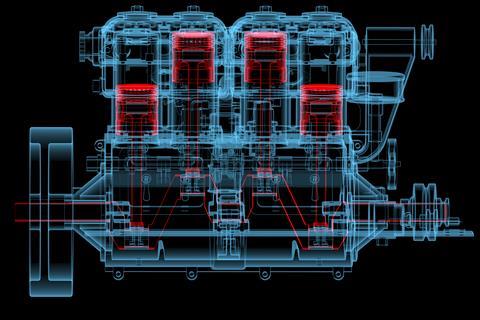Car Components Shop Offering Engines for Africa: Your Source for Top Quality Auto Parts
The Impact of Ingenious Engine Technologies on Energy Efficiency and Environmental Sustainability
In the realm of transport and commercial machinery, the continuous mission for improved power performance and decreased ecological influence has actually led to substantial improvements in engine modern technologies. From the progressive change in the direction of hybrid and electrical systems to the assimilation of turbocharging for enhanced performance, the landscape of engines is developing swiftly.
Development of Engine Technologies
The development of engine technologies over the decades has actually been noted by continual innovation and improvement in pursuit of enhanced efficiency and efficiency. From the very early days of interior burning engines to the sophisticated crossbreed and electric powertrains these days, the evolution of engine modern technologies has actually been driven by an unrelenting pursuit for improved fuel effectiveness and reduced exhausts.
One substantial milestone in this evolution was the advancement of turbocharging and direct shot systems, which significantly boosted engine power outcome while improving fuel effectiveness. These innovations enabled smaller, more lightweight engines that could provide the efficiency of larger ones without endangering on performance.
In addition, developments in products scientific research have actually caused the widespread adoption of light-weight products such as light weight aluminum and carbon fiber in engine building. This has not only lowered total vehicle weight however has additionally improved engine efficiency by decreasing energy losses related to inertia and friction.
Advantages of Electric and Crossbreed Equipments
With the growing concentrate on sustainability and energy efficiency, what advantages do hybrid and electric systems provide in the realm of engine technologies? Electric and hybrid systems present countless advantages that contribute to a much more energy-efficient and sustainable future. One of the main benefits is the significant reduction in greenhouse gas discharges contrasted to traditional internal combustion engines. Electric lorries produce absolutely no tailpipe exhausts, leading to boosted air top quality and minimized ecological impact. Furthermore, hybrid and electric systems are a lot more energy-efficient, transforming a higher percent of stored energy right into propulsion contrasted to standard engines. This performance causes lower energy usage and operating expense over the automobile's life time. Electric vehicles offer regenerative stopping systems that keep and capture energy usually shed throughout stopping, better enhancing energy effectiveness (engines for africa). Crossbreed systems combine the benefits of electric propulsion with the versatility of a combustion engine, giving prolonged reducing and driving arrays range stress and check it out anxiety for consumers transitioning to electric cars. On the whole, hybrid and electric systems play an essential duty beforehand energy effectiveness and environmental sustainability in the transportation field.
Turbocharging for Improved Effectiveness
Turbocharging jobs by making use of a generator to require even more air right into the combustion chamber, enabling for far better fuel burning and raised power outcome without a significant boost in engine dimension. By optimizing the performance of the combustion process, turbocharged engines can accomplish improved fuel economic climate and lowered exhausts, adding to environmental sustainability. The prevalent adoption of turbocharged engines in both fuel and diesel vehicles demonstrates check this site out their efficiency in stabilizing performance, efficiency, and environmental influence.
Utilizing Different Gas
Utilizing alternate gas offers an appealing method for minimizing carbon emissions and branching out the power resources utilized in transport. As the world strives to combat environment adjustment and reduce dependence on nonrenewable fuel sources, alternative fuels have actually acquired substantial attention for their prospective environmental and financial benefits.
Biofuels, such as ethanol and biodiesel, are originated from eco-friendly sources like corn, sugarcane, and algae, using a cleaner burning option to traditional gasoline and diesel. These gas can be mixed with existing oil gas or utilized in devoted engines, giving a pathway to reduced greenhouse gas discharges and boost air top quality.
In addition, hydrogen fuel cells have become an appealing technology for zero-emission transport. engines for africa. By transforming hydrogen gas right into electrical energy to power electrical motors, fuel cell vehicles produce only my website water vapor as a byproduct, getting rid of harmful tailpipe exhausts completely
In enhancement to minimizing carbon emissions, alternative fuels can additionally enhance energy safety and security by diversifying the gas mix and minimizing dependence on imported oil. Welcoming alternative fuels in transport is a critical step in the direction of attaining a much more lasting and eco-friendly future.

Future potential customers and environmental advantages
Alternate gas, such as biofuels, hydrogen, and electricity, deal considerable environmental advantages contrasted to standard fossil fuels. Furthermore, different fuels can aid diversify power sources, enhancing energy protection and minimizing reliance on limited resources.
Developments in modern technology continue to boost the efficiency and affordability of different fuel automobiles, making them extra available to customers. By accepting alternate fuels and cutting-edge technologies, the path in the direction of a more lasting future becomes increasingly achievable.

Conclusion
In conclusion, cutting-edge engine innovations have played a crucial duty in enhancing energy efficiency and promoting environmental sustainability. The evolution of engine technologies, fostering of hybrid and electrical systems, usage of turbocharging, and exploration of alternative fuels have all contributed to increasing and reducing discharges efficiency.
In the world of transportation and commercial machinery, the continual mission for enhanced power effectiveness and lowered ecological effect has actually led to significant advancements in engine innovations. Turbocharging works by utilizing a wind turbine to compel more air right into the combustion chamber, permitting for far better gas combustion and boosted power outcome without a substantial boost in engine size. By making the most of the performance of the burning process, turbocharged engines can achieve improved gas economic climate and decreased exhausts, adding to environmental sustainability. Alternative fuels, such as biofuels, hydrogen, and electrical power, deal significant environmental advantages contrasted to traditional fossil fuels. The development of engine innovations, fostering of electrical and hybrid systems, use of turbocharging, and exploration of alternative fuels have all contributed to raising and reducing discharges efficiency.